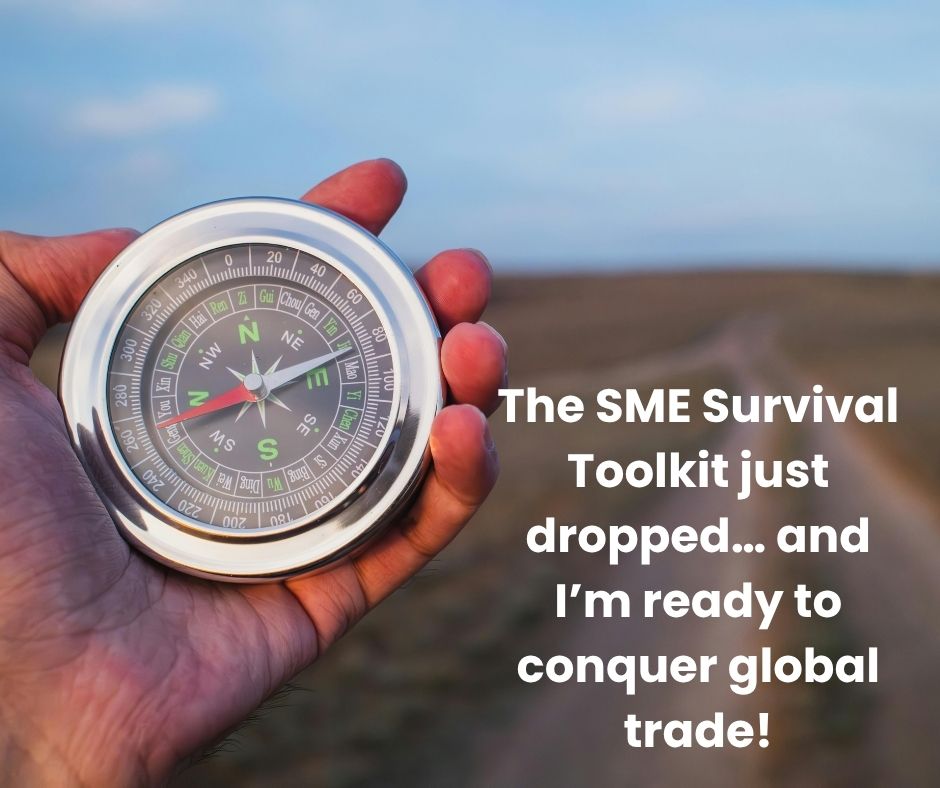SMEs Going Global: Big Wins and Smart Moves in Export & Supply Chains

In the past fortnight, small and medium-sized enterprises (SMEs) worldwide have navigated a dynamic landscape of export opportunities, regulatory shifts, and technological advancements.
Here are some notable developments:
1. China's Rare Earth Export Restrictions: Implications for SMEs
China's recent announcement to tighten export controls on rare earth elements, effective December 1, 2025, has raised concerns across global supply chains. Products containing even 0.1% Chinese-origin rare earth metals will require explicit approval, potentially disrupting industries reliant on these materials. This move underscores the challenges SMEs face in managing supply chain dependencies and the importance of diversifying sources to mitigate risks.
2. Flexport's AI Tools: Empowering SMEs in Tariff Compliance
Flexport, a San Francisco-based freight forwarder, has introduced AI-driven tools designed to assist SMEs in navigating complex and frequently changing tariff regulations. These tools aim to simplify customs processes, reduce compliance risks, and identify opportunities to lower duties, thereby enhancing the efficiency of small businesses engaged in international trade.
3. Brindle Films: Showcasing Central Australia's Culture Globally
Brindle Films, an Australian small business, was named the Northern Territory's Exporter of the Year for 2025. The company gained recognition for its film "Kangaroo," which highlights Central Australia's landscapes and culture. This accolade underscores the potential for SMEs in the creative industries to expand their reach and influence on the global stage.
4. Maruti Suzuki's Innovative Vehicle Transport to Kashmir
Maruti Suzuki, an Indian automaker, became the first company to transport vehicles to the Kashmir Valley via Indian Railways. This innovative approach enhances regional connectivity and supply chain efficiency, offering valuable insights for SMEs looking to optimise their logistics and distribution networks.
5. Supporting SMEs in Overcoming Global Supply Chain Disruptions
Small businesses often face heightened vulnerabilities in global supply chains due to limited resources and access to financing. Strategies such as supplier diversification, adoption of digital tools, and participation in supply chain financing programs can help SMEs build resilience and navigate disruptions more effectively.
As SMEs continue to adapt to these changes, their ability to innovate and leverage new tools will be crucial in maintaining competitiveness in the global market.
Global trade can be tough for SMEs—but the right knowledge and tools turn challenges into opportunities. From navigating complex supply chains to leveraging AI for tariff compliance, success depends on agility, insight, and practical strategies.
The SME Survival Toolkit gives you all that and more. Join the Global Trade LaunchPad, earn your Trade Management Digital Badge, and access guides, templates, and micro-credentials designed to help your SME thrive internationally. Master logistics, free trade agreements, and customs processes while customising resources to your business goals. Equip your business to survive—and succeed—in the global marketplace!